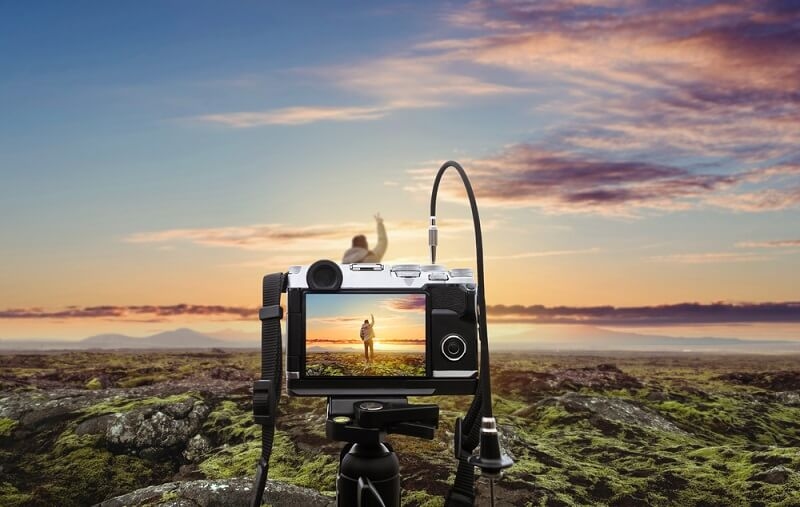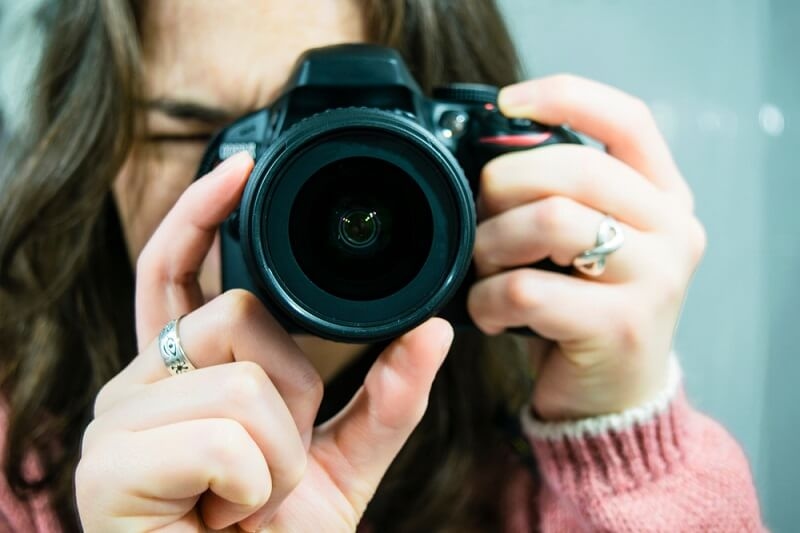Beginner Photography Tips That Transform Your Photos Fast

Photography goes beyond simply pushing a button; it is about seeing and capturing events in a way that conveys a story of some sort. If you’re not the only one, you've probably wondered how to start photography as a new hobby. New photographers can become overwhelmed by equipment, beginner camera settings, and photography terminology. That’s why beginner photography tips and photography tips for new photographers come into play, which will develop your knowledge. Receive shooting tips for beginners and learn easy tips and tricks on how to take better photographs. You’ll soon find confidence behind the camera and enjoy the process of improving your photography skills.
Understanding the Basics of Beginner Photography Tips
Before you begin shooting, it is helpful to understand the basics that are at the heart of photography.
The Exposure Triangle
At the core of photography lies the exposure triangle, comprising aperture, shutter speed, and ISO. The three settings control how light interacts with the sensor.
- Aperture (f-stop): This controls the size of the opening of the lens, affecting how bright and shallow the depth of field will be.
- Shutter Speed: This determines how long light enters your camera. There are fast shutter speeds to freeze motion, while slow shutter speeds create blur.
- ISO: This is how sensitive the camera is to light. Low ISO settings will make for less grainy images, while ISO settings that are higher will produce brighter images but with noise.
Composition Rules Every Amateur Should Know
Good composition can make or break your pictures, even if you don't have the latest gear. If you dig into photography tips for beginners, you'll probably come across some of the classic rules:
- Rule of Thirds: Divide your frame into three sections horizontally and three sections vertically, for nine equal parts, and place your subject on one of the lines of the grid.
- Leading Lines: Use a road, fence, or river to lead the viewer's eye to your subject.
- Framing: Use an interior (i.e., an opening) or natural frame to house your subject (i.e., window, arch).
- Symmetry and Patterns: Look for reflections, repeated shapes, or patterns that appear balanced.
How to Start Photography as a Hobby

Starting in photography doesn’t require professional gear or formal training. Here are a few practical steps to getting started:
Pick an Entry-Level Camera or Smartphone
You don’t need to buy the latest and greatest DSLR to start learning! Many beginner-friendly guides to photography suggest starting with a smartphone or a budget camera.
Know the manual settings.
You can experiment with the best beginner camera settings, shooting in aperture priority or shutter priority mode.
Select Simple Everyday Objects.
Could you take photographs of your pets, flowers, or street scenes? Simple and accessible subjects will help you learn to focus on details.
Get Out and Practice.
Like with any hobby, you'll develop skills with repetitive practice. You can set aside a few minutes each day to take photos.
Sign Up for a Photography Community
Online groups and local clubs can be great for sharing and studying your photography, as well as receiving inspiration and feedback to keep you motivated.
Best Beginner Camera Settings You Should Master
Adjusting camera settings can be a daunting task, but learning how they work can make it easier. Correctly changing them is one of the most helpful tips for amateur photographers.
- Aperture Priority Mode (A or Av): A useful mode for controlling depth of field while the camera adjusts the shutter speed. Great for shooting portraits!
- Shutter Priority Mode (S or Tv): A suitable mode for action shots; use this to freeze a subject's movement or allow motion blur, whichever you prefer.
- ISO Settings (or ISO Speed): Keep the ISO values low, like 100-400, when shooting during daylight. Increase the ISO values when shooting in low light.
- White Balance: The white balance is related to your specific lighting conditions. Typically, you can keep the setting set to "Auto" for most lighting conditions, but feel free to experiment with different presets.
- Focus Modes: Start with the single-point autofocus (Auto) mode to learn precise focusing.
Simple Tricks for Better Photos
Oftentimes, the most minor changes will lead to the most significant improvements overall. Below are some shooting advice tips for beginners or those who simply want an easy adjustment.
- Use natural light: The light at the hours of the morning and evening is the most appealing due to its softness.
- Keep the lens clean: Dust and smudges create a loss of quality.
- Photograph subjects at different angles—experimenting by getting low, shooting from above, or shooting to the side of the subject can create interesting and unique photographs.
- Don't zoom in too much!: Getting slightly closer to your subject will maintain quality.
- Take several photos: Taking a series of different variations will allow you to do more editing in post-production and during the process.
Beginner-Friendly Shooting Advice for Better Composition
Skills of artistry matter as well—here are some tips:
- Fill the Frame: Reduce distractions by zooming in on your subject.
- Watch Your Background: A messy background is the bane of even a tack-sharp image.
- Play with Depth of Field: In portraits, keep the subjects sharp while blurring out the backgrounds (bokeh).
- Light vs. Shadow: Learn to use contrast to create drama.
Photography Tips for Amateurs Practicing Outdoors
Engaging in outdoor photography presents a level of unpredictability and challenge, but it is also gratifying.
- Shooting During Golden Hour: Early mornings or late afternoons to capture softer, warmer tones.
- Manual Tripods: This helps to achieve stability with your shots and is particularly helpful to keep your camera steady in low-light conditions or when photographing landscapes.
- Lively Photography: They are great to convey motion, such as maybe kids running, buildings to depict flowing water, or trees blowing in the wind.
- Weather: Fog, rain, or snow all create unique moods worth capturing.
Building Confidence in Photography as a Beginner
Confidence grows with practice, but mindset plays a significant role as well.
- Don’t Compare Too Much: Every expert was once a beginner.
- Review and Learn From Mistakes: Analyze what went wrong and adjust settings accordingly.
- Seek Feedback: Constructive critique accelerates improvement.
- Celebrate Small Wins: Each sharp image or well-composed shot is progress.
Creative Exercises to Improve Photography Skills
Applying simple tricks for better photos is most effective when combined with creative practice.
- One Subject, 10 Shots: Challenge yourself to shoot the same subject from ten different angles.
- Black-and-White Experiment: Focuses your attention on contrast and composition.
- Shoot Daily Objects: Turn ordinary scenes into compelling art.
- Limitations Challenge: Use only one lens or a fixed focal length to sharpen creativity.
Choosing the Right Gear Without Overspending
While passion matters more than gear, the right tools help beginners learn effectively.
- Entry-Level DSLR or Mirrorless: Offers flexibility for learning manual controls.
- Prime Lens (e.g., 50mm f/1.8): Affordable and sharp, great for portraits.
- Tripod: Essential for stability in landscapes and night shots.
- Editing Software: Free or budget apps help you polish images post-shoot.
Common Mistakes Beginners Should Avoid
All new photographers make mistakes. Avoid these common vices:
- Too much reliance on Auto Mode.
- Not respecting composition rules.
- Not paying attention to the background while shooting.
- Not adjusting ISO for available light.
- Over-editing.
Bringing Beginner Photography Tips Together
Photography is a journey, not a race. By learning how to start photography as a hobby, exploring the best beginner camera settings, and applying beginner-friendly shooting advice, you’ll steadily improve. Continue to practice, experiment, and welcome feedback. With dedication and curiosity, anyone can transform snapshots into stunning photos.
Conclusion
Beginner photography tips provide a strong foundation for amateurs to grow into confident photographers. By practicing consistently, exploring camera settings, and applying simple tricks for better photos, you’ll learn how to start photography as a hobby and enjoy capturing moments with creativity and skill.
This content was created by AI

